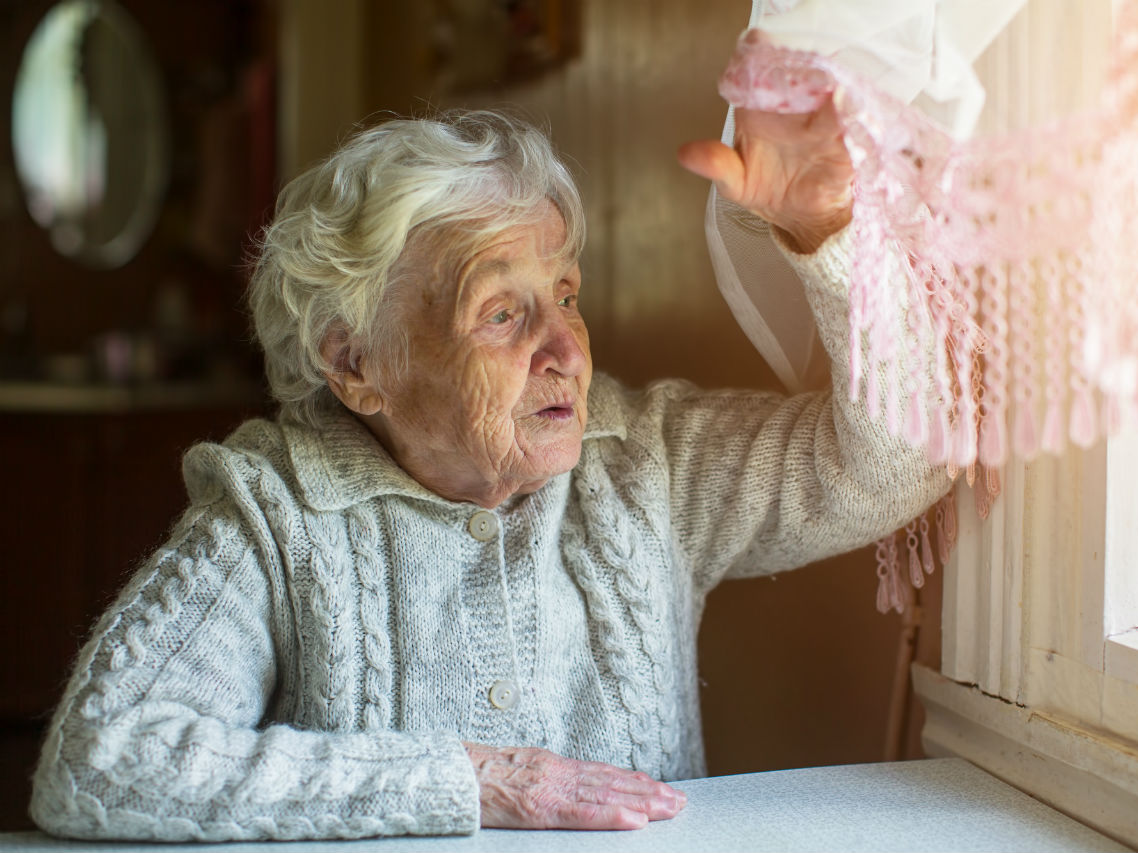- Research has shown there is greater prejudice among older adults.
- This is often dismissed as older people being “from a different time,” but this is not the whole story.
- As we get older, certain parts of our brain shrink, making us less inhibited.
- So older people may just be saying things they wouldn’t normally say.
- In other cases, they may have just always been that way.
- It’s up to the people close to the elderly to decide whether their remarks are meant maliciously or not.
It’s become something of a national meme in the UK that 97-year-old Prince Philip might say something culturally insensitive when he’s out in public. Similarly, people may find their grandparents say more unpalatable things as they get older.
These remarks are brushed off because older people “are from a different time,” and “it’s a different world to the one they grew up in.” But while this may be partially true, it’s not the full story.
Research has shown that young people are increasingly less racist than older people. For example, in 1958, just 4% of Americans approved of interracial marriage. This support only reached 50% in 1997, while now it is at 87%.
But the old prejudices of yesteryear don’t encompass racism entirely. Sometimes it can reveal itself with an ill-judged joke, or subtle racial stereotyping. As people age, their ability to judge what is or isn’t appropriate may falter, causing them to blurt out something others consider insensitive. (Although, others are simply born that way, and age has nothing to do with it.)
We spoke to psychologists about the possible reasons for inherent racism, and what the current research says about why people's behaviours alter as they age. There is never an excuse for being outright offensive, but when you are close to older people, context can be important in judging whether it's something you want to address directly, or let go.
Where racism comes from
Some scientists think there may be a biological or evolutionary basis to racism or prejudice because they see it as a reaction to a competition for resources. But there isn't a huge amount of evidence for this.
Rather, the reasons for racism are probably psychological; feeling a lack of security, a need for identity, a desire for belonging, and feeling threatened by other groups - insecurities that may increase as someone gets older.
If you don't like things about yourself, it's a lot easier to project that onto others than to look at yourself.
One reason in particular for this insecurity is that older people are closer to death, said Steve Taylor, a senior lecturer in psychology at Leeds Beckett University. There's a theory in psychology called terror management theory, he explained, and it essentially means that when people are more aware of their mortality, they become more naturalistic, materialistic, and conventional.
"They cling to the traditions and the conventions of their society in a stronger way," Taylor said. "The theory is when you think of death it creates a fear, and one way of reacting to that anxiety is to cling to identity, to try and gain a sense of belonging, or even a sense of protection."
For some, that comfort of belonging is found in the solidarity of hating others. Psychotherapist Allison Abrams told Business Insider people who relate to a hate group, such as neo-nazis, form strong bonds based on resentment.
"It's a distorted way to find a sense of belonging, but that's one thing that motivates people who fall into this category," she said. "If you don't like things about yourself, it's a lot easier to project that onto others than to look at yourself... Especially if somebody has low self-esteem or has a lot of self-hatred."

When people look or act differently to you, or come from somewhere else, it can be easier to use them as a scapegoat, by identifying them as a target to direct that anger and hatred towards.
Older people may feel their sense of identity is threatened if the world around them has changed a lot, such as when people from different countries and backgrounds move into their hometowns.
They may struggle to keep up with the world and feel as though they understand it less and less. This can be scary, and in retaliation, they may lash out at "the other" because it helps secure their sense of belonging.
When you're older, your mental structure is a bit more rigid, so you struggle to adapt in the same way
"You can never really underestimate the importance of the need for identity," said Taylor. "It's a really powerful psychological need... There's just a general feeling of anxiety in the air that creates this need for identity and belonging, and this need to demonise other groups."
There is something to be said for older people being from a generation where prejudiced views were more explicit - such as growing up during the times of segregation.
"But that's only part of it, because the research says even if people grew up in that era and had those attitudes, they can learn and they can become more liberal," Abrams said. "We have that ability as humans - our personalities change, and we can become more open."
Brains atrophy as we age
But that openness doesn't last forever. As people age, their flexibility declines, and they are less able to adapt and absorb like they could when they were young.
"When you're older, your mental structure is a bit more rigid, so you struggle to adapt in the same way," said Taylor. "And if you can't adapt it creates a sense of alienation, a sense of being overwhelmed and not fitting in."
Research has shown that older adults have a tendency to be more prejudiced than their younger counterparts, even when they appear unprejudiced throughout their earlier lives. This wouldn't make sense if people were only reacting to what they experienced when they were young.

Instead, the reasons could be biological. Abrams said the latest scientific theory for this is because areas of the brain going through changes as we age.
"Our prefrontal cortex starts to atrophy," she said. "In other words, the frontal lobes lose their sharpness."
That's the part of our brain that control executive functioning, like our ability to reason, to use logic and judgement, to apply filters, and inhibit inappropriate thoughts.
Everyone gets strange ideas popping into their heads that they'd rather not say. Most of us are able to control these thoughts, but as that cognitive ability starts to decline, you may find older adults blurting out things they might have kept to themselves in the past. It's a bit like having Tourette's syndrome, in that you have less control over what comes out of your mouth.
"They may have said them anyway, depending on their personality when they were younger," said Abrams. "But for the most part, they probably wouldn't have... Once we reach that old age where our brains start to lose that ability, those more hidden parts, those more subconscious thoughts, we are less able to inhibit them."
This isn't to say everyone is secretly racist. But as psychologist William von Hippel puts it in an article on the BBC website, it may not be the case that our inhibitory abilities suppress our personality. Rather, they actually shape it.

Older people may appear more racist, or more prejudiced, but it's not necessarily malicious or hateful. Sometimes it is, but not in every case, said Abrams.
"It could be that they hold these very negative views, and maybe they were racist and maybe they did say inappropriate things, and now it's just amplified. It's hard to know," she said.
There are two roads to go down
There is a growing sense of alienation between the young and the old, said Taylor. Especially looking at political differences such as the Brexit vote, or the rift between conservative and liberal voters in the US and UK.
In some areas of the world, older people are valued and respected. But in Western culture, it tends to be the opposite.
... just because somebody was born in an era that was less tolerant... doesn't mean that they are set in their ways.
"It's a very youth-obsessed culture, old age is seen as a process of decay where you lose your attractiveness, lose your productivity," Taylor said. "There does seem to be this schism between the young and the old."
This could be a factor in older people wanting to "say what they feel" more often, to get back at an oversensitive younger generation which is leaving them behind. This isn't likely to be the case for the majority of people, but it's worth pointing out.
According to the work of developmental psychologist Erik Erikson, there are two roads people can go down as they age. One is to go towards bitterness and anxiety, by complaining about the world today, and how much better things were in the past.
The other road is one of acceptance and wisdom, where people let go of the things that don't matter and feel more at peace with the world. After all, research has shown being over the age of 65 is one of the happiest times in human life - rivaled only by the late teens and early 20s.
So there is no absolute rule that people get judgmental and resentful as they get older. But for those who do, whether they start saying what they say out of bitterness, fear, or a cognitive decline, isn't going to be all that certain.
Research is helping us to understand that if someone you're close to says something completely inappropriate, there may be a biological factor to it. This understanding may provide the context to be able to reduce the schism between the young and the old, rather than writing older people off completely.
"The fact that just because somebody was born in an era that was less tolerant or there was more prejudice explicitly, doesn't mean that they are set in their ways," said Abrams. "It's not always the case that if you're an older person you're doomed and you're not going to change. Especially as we progress in society and become less ignorant. Well, most of us."

